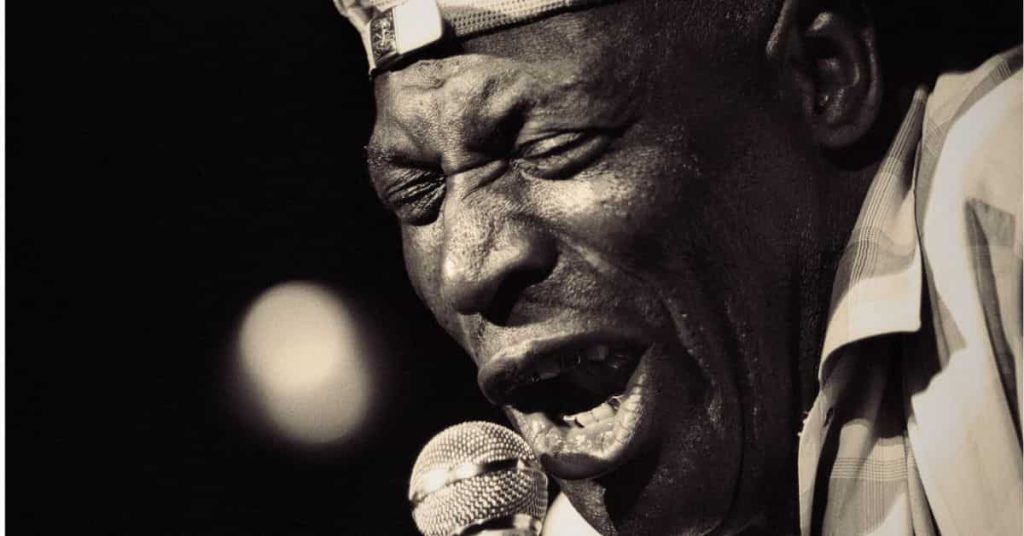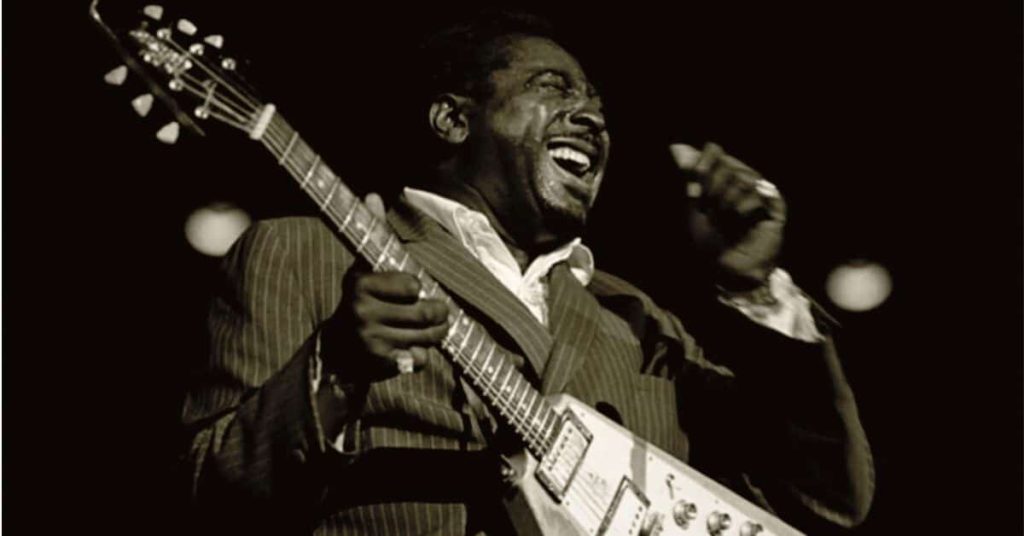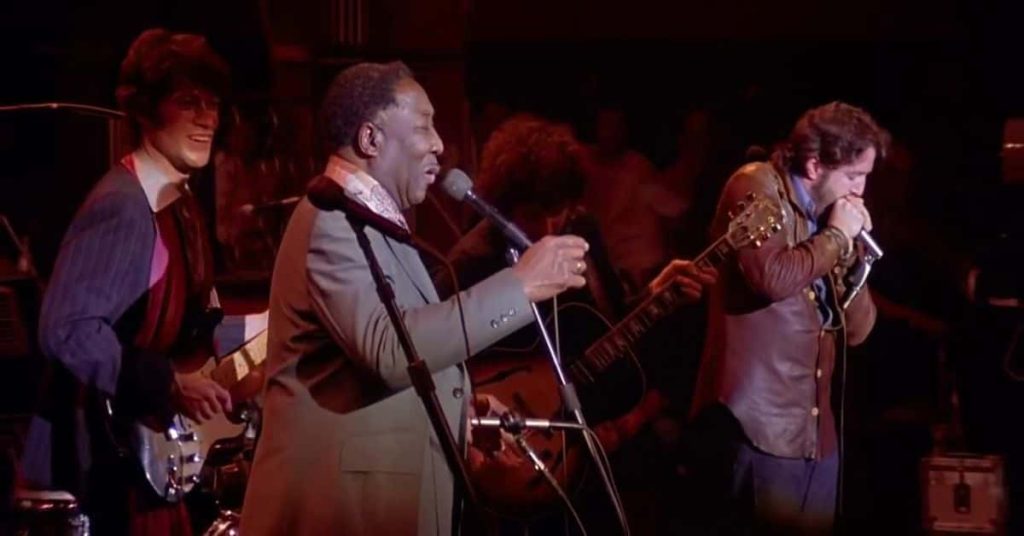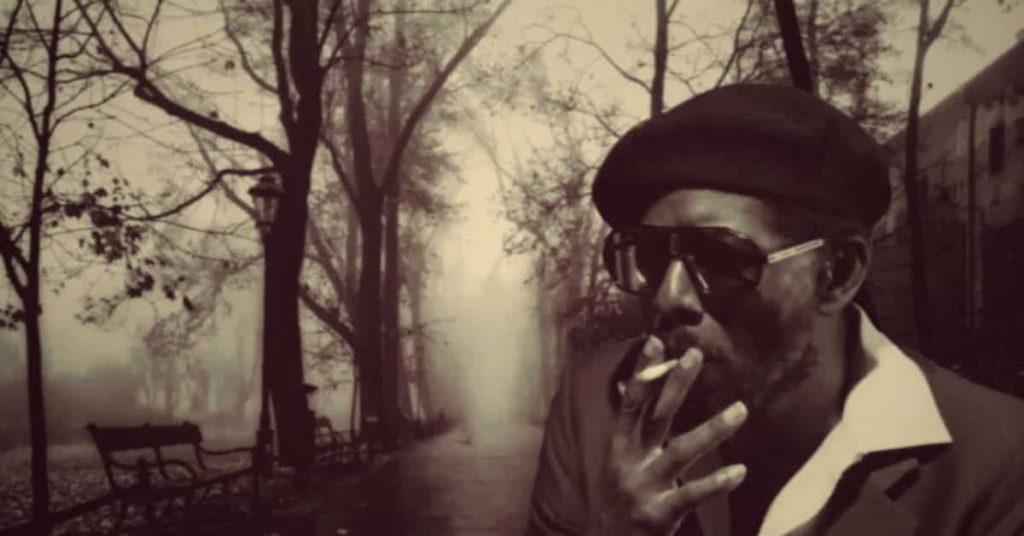Howlin’ Wolf – Smokestack Lightning – Live, 1964.
This is the only known filmed version of “Smokestack Lightning” by Howlin’ Wolf. This was shot in England during the famed American Folk Blues Festival tours and features the legendary Hubert Sumlin on guitar. In addition to other great Howlin’ Wolf footage, our archive houses many iconic blues performances from Muddy Waters, Lightning Hopkins, Sonny Boy Williamson, Willie Dixon, Son House, Mississippi Fred McDowell, John Lee Hooker, Big Mama Thornton, T-Bone Walker and Buddy Guy.
— ReelinInTheYears66
Howlin’ Wolf, the iconic and larger-than-life blues artist, left an indelible mark on the world of music with his powerful and soulful performances. Among his many classics, “Smokestack Lightnin'” stands out as a defining song in blues history.
The Birth of a Blues Legend
Howlin’ Wolf, born as Chester Arthur Burnett in 1910, emerged from the fertile soil of the Mississippi Delta, a region that would later become synonymous with the blues. His early life was marked by hardship, poverty, and the struggle for survival, and these experiences would deeply influence his music. As a young man, he worked as a sharecropper and absorbed the musical traditions of the Delta, learning the guitar and harmonica. This humble beginning laid the foundation for his future as a blues legend.
Wolf’s journey to the Chicago blues scene was a pivotal moment in his career. The vibrant urban environment of Chicago provided him with opportunities to showcase his unique talent and connect with other influential musicians of the time. It was in this bustling city that “Smokestack Lightnin'” took shape, reflecting the evolution of Wolf’s signature sound, characterized by his growling voice and commanding stage presence. This song later became a defining moment not only in his career but also in the history of blues music.
The Lyrical Tapestry
“Smokestack Lightnin'” weaves a lyrical tapestry that is as haunting as it is poetic. The song’s lyrics transport listeners to a desolate, moonlit landscape where the distant sound of a train’s mournful whistle, the “smokestack lightnin’,” becomes a symbol of yearning and despair. The vivid imagery and evocative storytelling in the lyrics are hallmarks of the blues tradition, and they resonate deeply with anyone who has experienced longing and heartache. The song’s lyrics also cleverly juxtapose the natural world with industrial imagery, a metaphorical choice that mirrors the internal struggles faced by Howlin’ Wolf himself.
The train represents progress and change, elements that can both inspire hope and bring pain. In this way, “Smokestack Lightnin'” becomes a reflection of the human condition, where we grapple with the forces of change and our own desires. Howlin’ Wolf’s ability to infuse such raw emotion into his music through his lyrics is a testament to his storytelling prowess and the depth of his artistry.
Musical Alchemy
“Smokestack Lightnin'” is a prime example of musical alchemy at its finest. Howlin’ Wolf, backed by a stellar ensemble of musicians, conjures a sonic experience that captivates listeners from the moment the song begins. The interplay between the instruments is nothing short of mesmerizing. The moody harmonica sets the mood with its mournful wail, while the relentless rhythm section drives the song forward with a pulsating heartbeat. One cannot discuss this masterpiece without acknowledging the blistering guitar work that punctuates the song. It’s as if the guitar itself is crying out in anguish, echoing the pain and longing expressed in the lyrics.
Howlin’ Wolf’s vocals, with his trademark growl, soar above this musical landscape so as to add another layer of intensity to the performance. The result is an atmosphere that is both brooding and electrifying, a testament to the impeccable craftsmanship of the musicians involved. In dissecting the musical elements of “Smokestack Lightnin’,” it becomes evident that this song is a true embodiment of the blues genre, showcasing the power of simplicity and emotion in music. Each instrument, each note, and each pause serves a purpose, contributing to the emotional depth and impact of the song.
The Influence of Delta Blues
The roots of “Smokestack Lightnin'” stretch deep into the rich soil of the Delta blues tradition. Howlin’ Wolf, having grown up in the Mississippi Delta, drew from the musical heritage of the region and paid homage to the artists who had gone before him. The mournful slide guitar, the raw vocal delivery, and the call-and-response structure of the song all bear the unmistakable imprint of Delta blues. In the Delta blues tradition, artists like Robert Johnson and Son House had paved the way for Howlin’ Wolf. Their music was steeped in the hardships and experiences of the rural South, and Wolf inherited this legacy, infusing his own songs with the deep, soulful essence of the Delta.
“Smokestack Lightnin'” serves as a bridge between the past and the present, a testament to the enduring power of this musical lineage. The Delta blues not only influenced Howlin’ Wolf’s sound but also provided the emotional foundation for his music. It was in the Delta that he learned to channel his life experiences into his art, creating songs that resonated with the struggles and joys of his community. “Smokestack Lightnin’” reflects this tradition of storytelling through music, where every note carries a piece of the artist’s soul and a fragment of the Delta’s history.
The Evolution of a Classic
Since its initial release in 1956, the song has undergone a fascinating evolution. What started as a regional hit in the blues world soon transcended boundaries and found its way into the hearts of listeners across the globe. The song’s enduring appeal can be attributed to its timeless themes and musical brilliance. Over the years, numerous artists and bands from various genres have paid tribute to “Smokestack Lightnin'” by covering it or incorporating elements of the song into their own work.
This widespread recognition and reinterpretation of the track have kept it fresh and relevant, ensuring that new generations of music lovers continue to discover its magic. From blues purists to rock legends, the song has left an indelible mark on the musical landscape, showcasing its enduring power and influence.
“Smokestack Lightnin'” by Howlin’ Wolf goes to show the enduring power of the blues. It’s a song that transcends time and space, connecting with listeners on a deep and emotional level. From its humble origins in the Mississippi Delta to its continued relevance in the modern music landscape, this song has touched the hearts of countless individuals.
As we’ve journeyed through the history, lyrics, musical elements, and impact of “Smokestack Lightnin’,” we’ve gained a deeper appreciation for the artistry and legacy of Howlin’ Wolf. The song remains a beacon of the blues. It casts a powerful light on the human experience and the enduring resonance of music that speaks to the soul. Its enduring appeal is a testament to the timeless nature of great art and its ability to touch the hearts of past, present, and future generations.






